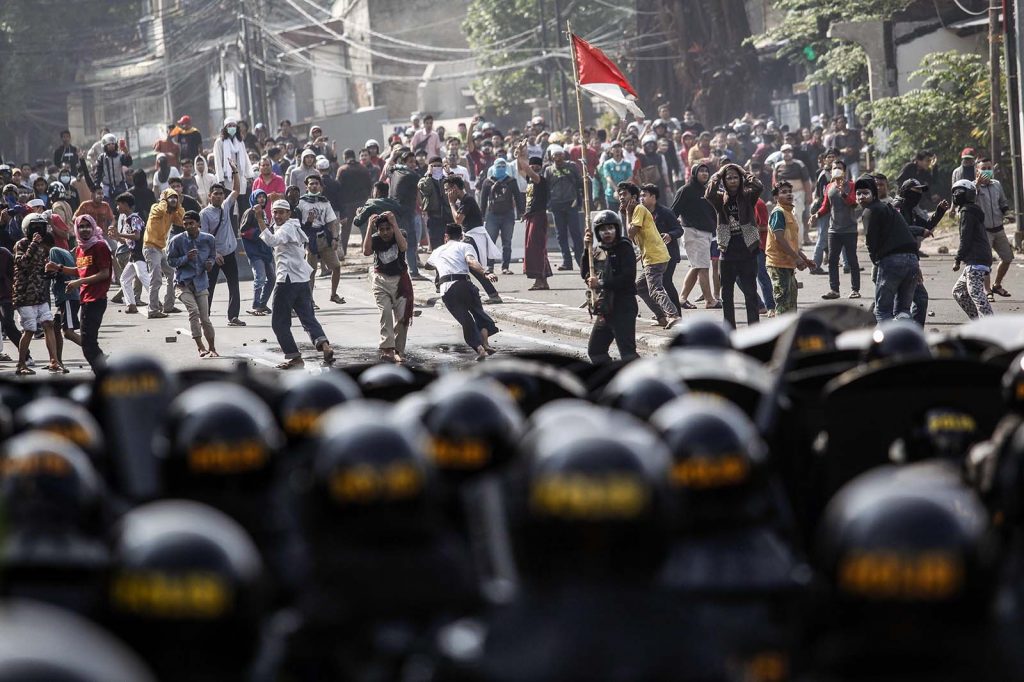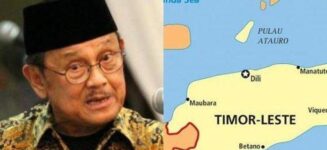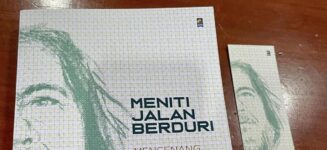The weeks-long protests and defiant attitude of defeated presidential candidate Prabowo Subianto, followed by rioting in Jakarta on May 21 and 22, have opened a new dimension in Indonesian politics.
No less than half a dozen retired generals, many of them prominent during the last years of president Soeharto’s New Order, were reportedly involved in the protests against the authorities.
Prabowo had lost his bid for the presidency, but he made it clear he would not go down without a fight.
All ex-commanders of the Army’s elite Special Forces (Kopassus), which Prabowo once led, were reportedly to join the rally of his supporters on May 22, but following the Army chief’s intervention, a number of former Kopassus commanders suddenly got together to demonstrate their unity.
The leading armed services personnel had thus been kept unaware of and taken by surprise by Prabowo’s call for their former colleagues to demonstrate their support for him.
Responding to Prabowo’s challenge just one day before the rioting started on May 21, a number of former Kopassus commanders who are loyal to the authorities took an unprecedented step to firmly declare unity, insisting that they wouldn’t participate in any unconstitutional acts — thus denying that Prabowo’s claim about the outcome of the presidential election is legitimate.
Yet it took two days before Prabowo himself, on the afternoon of May 22, called on his supporters to obey lawful security agents, even as authorities said eight persons had died as a result of the rioting.
The events raise the question of whether the military elite and the retired officers are able to stay united as a corps.
For, while Prabowo wanted to collect his former corps stars to demonstrate their support for him and at the same time maintain his alliance with Islam-based political parties that are supported by Islamic mass organizations that often employ thuggery, he had, in fact, enabled his supporters to mobilize the masses and wage war on his behalf.
Conflict between members of Indonesia’s military elite is by no means new.
There have been almost no political issues in Indonesia’s modern history that didn’t involve some members of the Army elite — from the 1948 “Madiun affair” in East Java, the 1958 rebellions against Jakarta, the events in 1965 leading to widespread detentions and massacres and the 1974 “Malari” affair in Jakarta to the fall of Soeharto following May 1998 riots.
There had also been a long schism between the “red-and-white” (nationalist) and “green” (Islamic) generals in the latter part of Soeharto’s period.
Now, as active military members have been banned from politics since Reform in 1998, it is important to inquire into the unity of the military family — all the more so since it concerns its most prestigious Army unit and, given its human rights record, the most controversial one: Kopassus.
Retired officers are now active politicians appealing for public support, but some take with them the honor, pride and privileges of the corps.
Of the at least half-dozen retired generals who have publicly been involved in various acts to support Prabowo’s run for the presidency and the subsequent protests, most were part of Kopassus: former Army chief Djoko Santoso, who led Prabowo’s campaign team, Soenarko, Kivlan Zen, Sjafrie Sjamsoeddin and Tyasno Soedarto.
Media reports said there had also been some movement among retired generals outside the Kopassus family involving Prabowo’s close friends, Glenny Kairupan, who served in East Timor when violence erupted in 1999, and Chairawan, leader of the Mawar Team, who was responsible for kidnapping antigovernment activists in 1997.
Little is known about their Islamic aspirations, but most of them have reportedly been close to some Islamic groupings.
According to a 2010 Indonesian Military report, only Tyasno, former Army chief and once Soeharto’s bodyguard, is known to have been sympathetic to the now banned Hizbut Tahrir Indonesia.
None, however, have been more instrumental than Soenarko, 65. He is a former Kopassus commander who was regional military chief in Aceh in 2008 and 2009, just as the war-torn province entered its critical peace period following the 2005 Helsinki peace deal between the government and the Free Aceh Movement.
A man with experience with war and political maneuvering as district commander in East Timor, Soenarko played a key role in Aceh from 2005 to 2012.
Soenarko had been successful in integrating Central Aceh, with its
mostly Jakarta-oriented Javanese population, into Aceh’s special
autonomy province and dividing former rebel leaders by isolating the
local
party led by then-governor Irwandi Yusuf in order to strengthen the ruling hegemonic Aceh Party (PA).
Soenarko has thus changed Prabowo’s image (he was implicated in the Rumah Geudong [House of Torture] case in Pidie in the 1990s) from being a “strange bedfellow” to a powerful protector in the troubled Jakarta-Aceh relationship.
Soenarko subsequently headed the National Resilience Department of Gerindra, the Prabowo-led political party that became the PA’s ally sidelining all national and local parties in Aceh’s local elections.
Soenarko has been detained on charges of treason against the state for threatening the President and the General Elections Commission and for smuggling weapons from Aceh to Jakarta for that purpose. His role, according Tempo magazine’s May 26 report, is the most concrete indication that he was directly linked to Prabowo and the post-election rioting.
The way the Army leaders abruptly called off Prabowo’s plan to mobilize former Kopassus commanders indicates that the state is determined to keep the military family, both active and retired officers, united, a sign that democracy remains fairly strong.
However, since Prabowo maintains his claim by stubbornly disputing the official outcome of the presidential election as a stratagem to keep up the momentum of mass support, the responsibility for instigating mass actions is his and no one else’s — despite his claim that he was not responsible for the riots.



